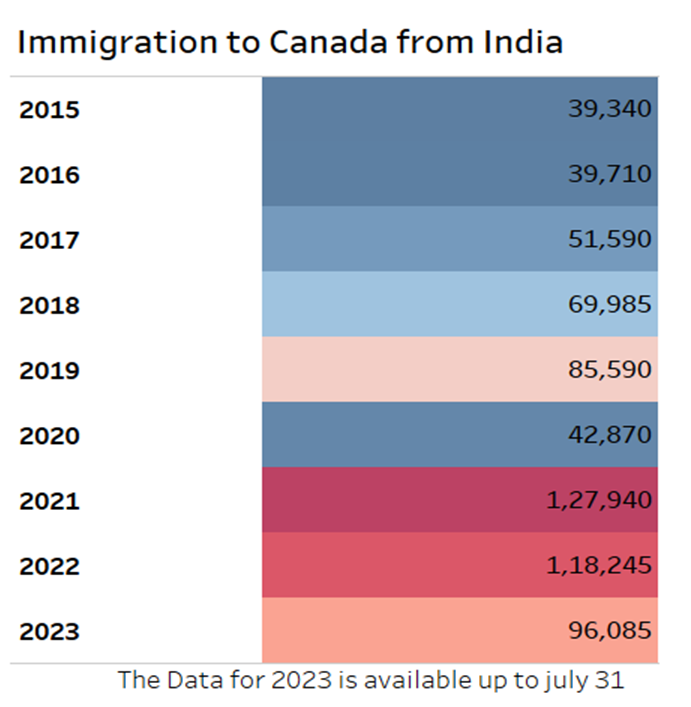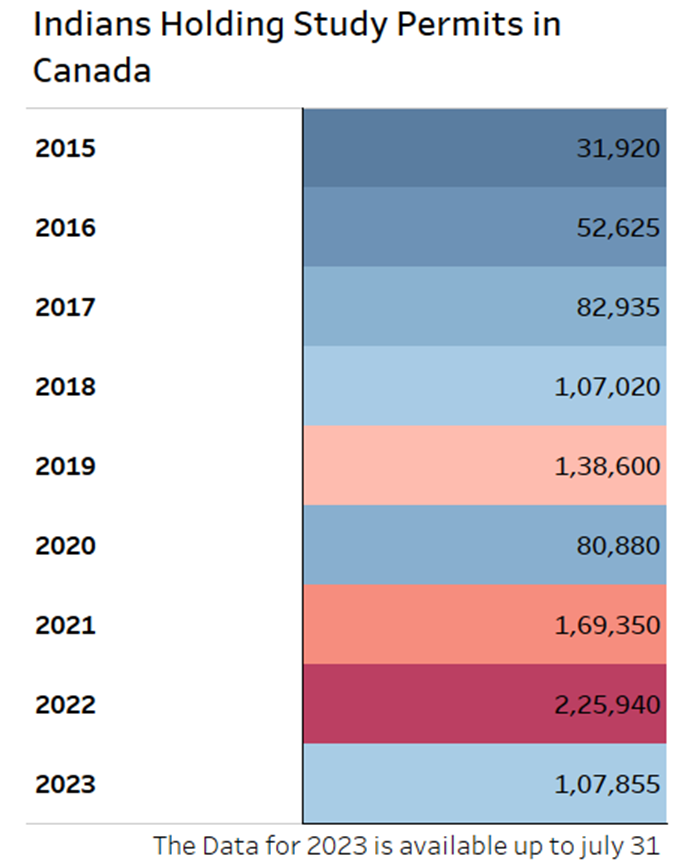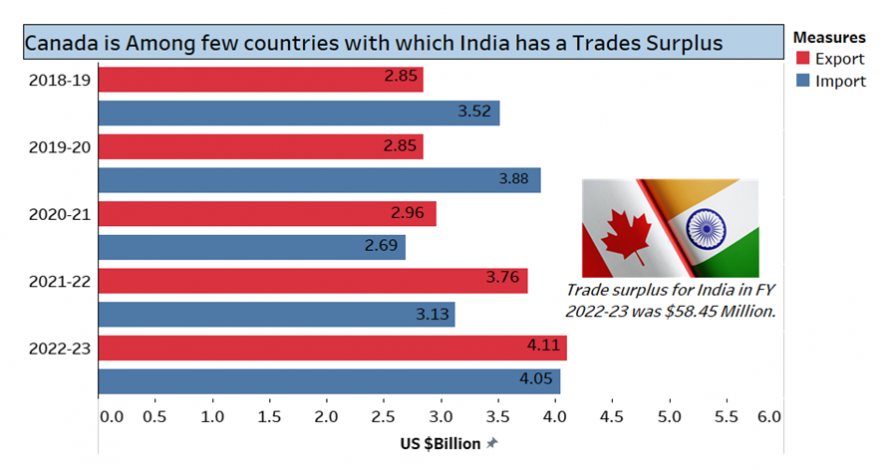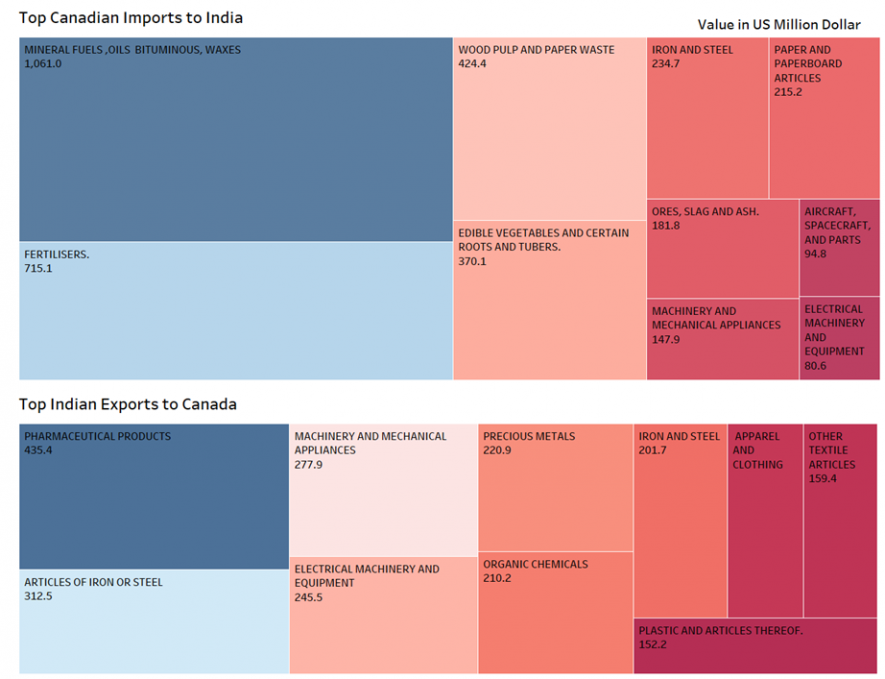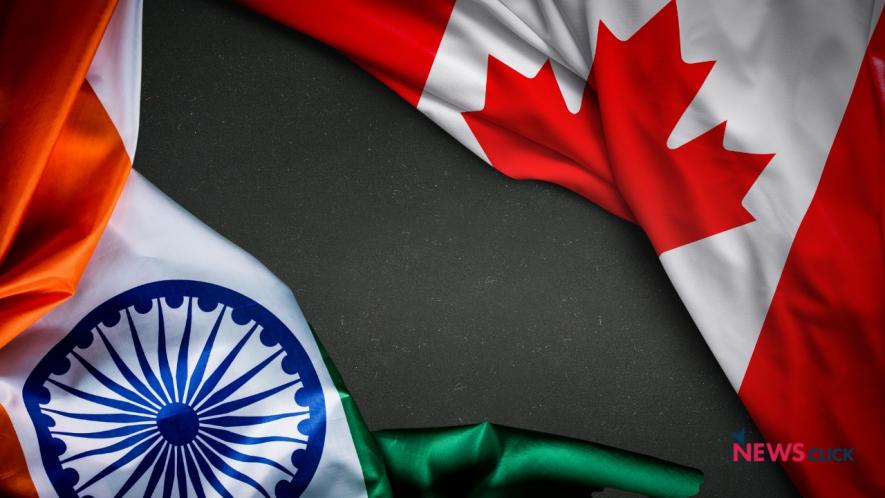CBC/Radio-Canada - `10/08/2022
Andrea Skinner, interim board chair of Hockey Canada, has submitted her resignation, CBC News has confirmed, days after a controversial parliamentary committee meeting where she defended Hockey Canada's handling of group sexual assault allegations involving past junior players.

Andrea Skinner, interim board chair of Hockey Canada, has submitted her resignation, according to a copy of an email obtained by CBC News.© Courtesy airdberlis.com
The hockey organization has been under intense public scrutiny since May, when it settled a $3.5-million lawsuit by a woman who alleged that eight hockey players — including members of the 2018 world junior team — sexually assaulted her at a hotel in London, Ont., while she was heavily intoxicated.
On Tuesday, Skinner appeared before the House of Commons heritage committee and said toxic behaviour is a society-wide issue and that it's "counterproductive" to use Hockey Canada as a "scapegoat."
Many MPs called her response arrogant and tone-deaf. Major sponsors — including Tim Hortons, Canadian Tire and Nike — have responded to the scandal by cutting ties with Hockey Canada permanently or by withdrawing funding for men's hockey this season.
In an email obtained by CBC News, Skinner wrote: "Upon reflection, it is clear to me from recent events that it no longer makes sense for me to continue to volunteer my time as Interim Chair or as a Director of the organization."
Radio-Canada first reported on Skinner's email Saturday evening. Hockey Canada confirmed to The Canadian Press later in the evening that Skinner had submitted her resignation.
A CBC News Fifth Estate investigation last week found that police have investigated at least 15 cases of alleged group sexual assault involving junior hockey players since 1989 — and half of those cases surfaced in the past decade.
In total, at least 50 players have been accused in the alleged crimes, with 25 eventually charged, The Fifth Estate has found. Only one of those charged has been convicted, after pleading guilty to a lesser offence.
Roughly 10,000 minor junior players and nearly 1,000 major junior players are registered to play in Hockey Canada-governed leagues and teams.
How the organization that calls itself the 'custodians of the game' had a remarkable fall from grace
Publishing date: Oct 08, 2022 •
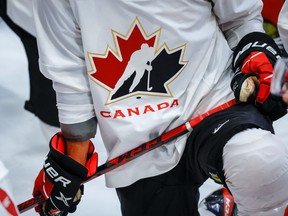
Perhaps the leadership of Hockey Canada thought Canadians loved their hockey more than people, like executives of the sport’s national governing body are accused of doing, by deed if not intent.
Over six months of scandal and investigation, the organization that calls itself the “custodians of the game” has faced withering criticism without easing concerns of sponsors, politicians, citizens or other hockey groups.
The accusations and allegations are horrific enough — gang rapes and other sexual assaults by junior players followed by secret payouts that silence complainants and settle lawsuits — but the response by Hockey Canada’s leadership has gone even further in stripping public confidence.
It’s a remarkable fall from grace.
RECOMMENDED FROM EDITORIAL
Hockey Canada held a special place in the cultural landscape of the country. It basked in the reflected glory, passion and joy of a sport considered the national pastime, as it managed ice hockey programs from entry-level to high performance teams, including at world championships and the Olympics.
What has been revealed by investigative news stories, parliamentary committee testimony and complaints of a “toxic” culture is a steep departure from the sportsmanship, integrity, honesty and teamwork the organization preaches to kids learning to skate and pass a puck.
It started with a lawsuit.
On April 20, a woman filed a $3.55-million court action against Hockey Canada, the Canadian Hockey League and unnamed players alleging she was sexually assaulted in a hotel room by eight male players — including some members of Canada’s 2018 gold medal-winning World Junior team — after a Hockey Canada Foundation gala in London, Ont., that same year.
Her lawsuit alleges Hockey Canada knew of the incident but failed to properly investigate it or punish the players.
The allegations were not tested in court and the defendants did not file statements of defence because the case was settled out of court by Hockey Canada in May.
Soon after the allegations and settlement were revealed by Rick Westhead at TSN, the federal government ordered a forensic audit of Hockey Canada to see if federal money was used in the settlement.
Hockey Canada’s chief executive officer, Tom Renney, and its president, Scott Smith, were called before Parliament’s Standing Committee on Canadian Heritage in June to answer questions.
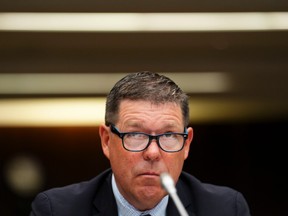
The committee was told the 19 hockey players present at the gala — including eight accused of rape — were not required to speak with third-party investigators, and the settlement required the woman to accept a non-disclosure agreement preventing her from discussing it.
The non-disclosure agreement was criticized for instilling a culture of silence — burying problems from scrutiny and accountability — and it remained in place until the day before the executives were scheduled to appear again before the parliamentary committee in July.
The larger concerns caused the federal government and some corporate sponsors, starting with Scotiabank, to hold back funding to Hockey Canada.
Renney retired at the end of June, replaced by Smith who took over on Canada Day. Two weeks later, Hockey Canada issued an open letter.
“We have not done enough to address the actions of some members of the 2018 national junior team or to end the culture of toxic behaviour within our game,” the statement said. “For that we unreservedly apologize.”
Hockey Canada said it was reviewing its governance, creating a confidential complaint system and making sexual violence and consent training mandatory for everyone in the elite stream.
The response was unconvincing for many, especially as scandals continued to unfold.
Four days after trying to put scandal behind it, The Canadian Press revealed Hockey Canada maintained a fund that draws on minor hockey membership fees to pay for uninsured liabilities, including sexual abuse claims. It was called the “National Equity Fund.”
The parliamentary committee was then told that non-disclosure agreements were used in settlements of other sex assault complaints — along with $8.9 million in payouts to 21 sex assault complainants since 1989; and there had been two other sexual assault complaints in recent years, but executives refused to discuss them.
Then yet another bombshell.
Halifax police was asked to investigate an alleged gang rape by some members of Canada’s 2003 men’s World Junior hockey championship team. Halifax co-hosted that tournament.
Hockey Canada was also found this month to have a second multimillion-dollar fund — called the Participants Legacy Trust Fund — that moved player fees into an account earmarked “matters including but not limited to sexual abuse,” The Globe and Mail reported. The organization sought to extend the trust’s expiration date from 2020 to 2039 because more claims were expected.
Hockey Canada’s reaction to it all seems a strategy — as Justin Trudeau, the prime minister, called it — of “digging in their heels.”
Hockey Canada executives were accused of inadequate, tone-deaf responses, protectionism, and entrenchment rather than truth and reconciliation.
In August, Hockey Canada’s board chair Michael Brind’Amour resigned, saying he was stepping aside to accelerate change. He had been the chair since 2018. Toronto lawyer Andrea Skinner was named interim chair, but Smith remained both CEO and president.
On Tuesday, Skinner supported Smith and his executive team and said managerial change isn’t needed, attributing calls for Smith’s firing to “misinformation” and “cynical attacks.”
She suggested Hockey Canada was made a “scapegoat” for toxic culture and it retained an “excellent reputation.”
Without these specific Hockey Canada executives, she said, there might not be any more amateur hockey in Canada.
“I think that would be very impactful in a negative way to all of our boys and girls who are playing hockey,” she said of replacing Hockey Canada executives. “Will the lights stay on at the rink? I don’t know.”
Politicians from all parties remain highly critical.
Trudeau said the executive’s responses “boggles the mind” and there is a “total loss of faith in that organization by everyone.”
Pascale St-Onge, the federal sport minister, said of Hockey Canada executives: “I hope that they understand the message and leave before they burn it to the ground.”
Conservative MP John Nater, criticized Hockey Canada leadership for appearing “more concerned with shifting the narrative than with meaningfully implementing change.”
Watching it publicly unwind from the bench, corporate Canada has now jumped onto the ice; large sponsors are cancelling funding partnerships. Corporate spokespeople aren’t shy about why.
Tim Hortons has done more to align its brand with hockey than most non-sports corporations, but this scandal prompted it to withdraw support for men’s hockey programming run by Hockey Canada, including sponsorship for the World Junior championship. Money will instead go to women’s, youth and para hockey teams.
We’re deeply disappointed in the lack of progressTIM HORTONS SPOKESPERSON
“The organization needs to take strong and definitive action before it can regain the faith and trust of Canadians. We’re deeply disappointed in the lack of progress,” a Tim Hortons spokesperson said.
Sobeys grocery chain is trying to support the women’s national hockey team directly, without any connection to Hockey Canada.
“We were disgusted by all of the allegations and, as importantly, Hockey Canada’s unwillingness to make meaningful change to earn back the trust of Canadians and ensure everyone feels welcome and safe when playing the sport,” said Paul Wyke, a Sobeys spokesman.
Telus has partnered with Hockey Canada since 2004, but it also ended its sponsorship of Hockey Canada’s men’s hockey programs for the season, including the World Juniors.
“We are deeply disheartened by the lack of action and commitment from Hockey Canada to drive necessary cultural change,” said Steve Beisswanger, a company spokesman. “We remain passionate fans and supporters of the sport of hockey and stand committed to enabling systemic change to make hockey safe for all.”
Imperial Oil’s Esso brand has aligned itself with hockey in Canada as a corporate strategy for more than 40 years.
A whole section on Esso’s website boasts that hockey is “more than a game. It’s a way of life.” It too is ending its sponsorship for Hockey Canada’s men’s programs, including the World Juniors, “until we see meaningful accountability, transparency and change,” said Keri Scobie, an Esso public affairs officer.
Canadian Tire, where many Canadians buy their first skates and hockey sticks, jumped ship Thursday.
“In our view, Hockey Canada continues to resist meaningful change and we can no longer confidently move forward together,” said Jane Shaw, senior vice president of communications at Canadian Tire Corporation.
The company “will continue to invest in our beloved national game” by re-directing money to other hockey-related groups, including bullying, abuse, harassment, and discrimination prevention.
On Friday, the last of Hockey Canada’s four top-tier sponsors pulled out: Nike, the athletic brand giant, suspended its partnership, a relationship in place since 1999. Esso, Telus and Tim Hortons were the other “Premier” marketing partners.
It isn’t only outsiders condemning the culture and decisions at Hockey Canada.
Players on Canada’s Olympic and world championship women’s hockey teams issued a joint statement demanding Hockey Canada address “toxic behaviour” in the sport.
Hockey Québec, the sport’s governing body for that province, said its board no longer has confidence in the national organization and won’t be transferring player fees. The Ontario Hockey Federation asked Hockey Canada not to collect its player fees this season.
At an emergency board meeting this week, Hockey Nova Scotia also voted to suspend fees to Hockey Canada.
“Hockey Nova Scotia has lost confidence in Hockey Canada’s senior leadership. Hockey families and non-hockey families alike agree: Change is needed at the highest levels of the game,” the board said. Hockey New Brunswick did likewise on Friday.
Eleven weeks from now, Canada’s junior hockey elite are set to defend the country’s title against many of the world’s best under-20 hockey players at the 2023 World Junior Championship. The tournament is an adored holiday season tradition for many. It’s run by Hockey Canada and the International Ice Hockey Federation.
Halifax and Moncton, N.B., are set to host the ten-country tournament Dec. 26, 2022, to Jan. 5, 2023, but the scandal involving Hockey Canada and junior hockey players is not ignored there either.
“I am deeply disappointed by what we continue to see with Hockey Canada,” Nova Scotia Premier Tim Houston said Thursday.
“Before the 2023 IIHF World Junior Championship goes forward, we need to see some meaningful changes that respect the concerns of Nova Scotians and Canadians.”
With additional reporting by The Canadian Press
• Email: ahumphreys@postmedia.com
Experts say Hockey Canada's "scorched-earth" response to criticism over its mishandling of alleged sexual assaults could sink the sport's national governing body as we know it today.

The organization has been under intense scrutiny since the spring, facing mounting public outcry and calls for change. But despite frozen federal funding and fleeing corporate sponsors, both former and interim board chairs this week defended the current leadership in Ottawa.
“The logic of their entrenchment is beyond reason ... it's just mind-blowing,” said Paloma Raggo, a professor at Carleton University’s School of Public Policy and Administration who teaches philanthropy and non-profit leadership.
“Are they willingly trying to sink this organization?”
Many organizations, from corporations like banks to charities and amateur sports bodies such as Hockey Canada, are governed by boards of directors. Hockey Canada's board oversees its management and staff, and is elected by its member provincial hockey federations.
Raggo said Hockey Canada’s bylaws include a mechanism where member organizations can call a special meeting to revoke individual board directors, and questioned why this mechanism hasn’t been used yet.
Former Hockey Canada board chair Michael Brind'Amour stepped down in early August ahead of the end of his term this fall. The next board election is scheduled to happen in November.
Hockey Canada has been grilled by Ottawa over why president and chief executive officer Scott Smith, who’s held the position since July 1, has not been fired amid the string of scandals. Interim chair Andrea Skinner defended Smith this week and said hockey shouldn't be made a "scapegoat" for toxic culture that exists elsewhere in society.
Raggo rejected the idea that getting rid of Smith would be scapegoating. Though he’s new to the role, he’s not new to the organization, and appears to be a symbol of continuity at a time when the public is calling for change, she said.
"It's a person that's been involved in that organization since 1997," she said. "It kind of defeats the purpose."
York University law and governance professor Richard Leblanc said the board's job is not to defend management, but to act in the best interests of the organization.
"I've never seen this in almost 30 years," he said. "It's implausible to see that the best interests of the organization are served by continuing a scorched-earth, entrenchment policy."
As the organization sheds sponsors and member support, it's clear that stakeholders have lost confidence in the board's ability to identify and respond to the risks that face Hockey Canada, said Christie Stephenson, the executive director of the Dhillon Centre at the UBC Sauder School of Business.
"Board directors' obligations are to the organization, and that also means its stakeholders," she said.
The board's role is to not only oversee, but to challenge management, said Stephenson — not to back them up when things go sideways.
There are two big questions being asked, said Stephenson: what kinds of consequences management of Hockey Canada should face, but also whether its current board is the right governing body to oversee those consequences.
Come election time, Hockey Canada's members will exercise their votes and make clear whether they want the board's current lineup to remain, said Stephenson, who teaches director training and board governance.
She said the board of directors should be asking themselves whether they are the right people to sit at the table — and answering honestly.
“Directors absolutely need to be aligned with the values of an organization,” she said. “And it's pretty clear that stakeholders believe Hockey Canada's values need to shift.”
Hockey Canada's mission statement, according to its website, is to "lead, develop and promote positive hockey experiences."
The organization initially came under fire in May when it was revealed an undisclosed settlement had been paid to a woman who alleged in a $3.55-million lawsuit she was sexually assaulted by eight players — including members of the country's world junior team — after a 2018 gala in London, Ont. The allegations have not been proven in court.
The ugly headlines continued with the revelation of a fund partly maintained by minor hockey registration fees to pay for uninsured liabilities, including sexual assault and abuse claims.
Organization officials testified on Parliament Hill in July that the organization had paid out $7.6 million in nine settlements related to sexual assault and abuse claims since 1989, not including this year's payout to the London plaintiff.
Raggo likened the Hockey Canada scandal to recent stories about Gymnastics Canada and the WE charity, and said it's clear more oversight is needed of the entire Canadian non-profit sector.
Hockey Canada released an action plan to address safe sport issues and has appointed former Supreme Court justice Thomas Cromwell to conduct a governance review, which Raggo said is a positive step.
But Leblanc says that’s not enough.
"There's only one right decision, which is a leadership change at the top,” he said. “If they don't do that, then the board ultimately is going to be replaced.”
The tone at the top is crucial at a time like this, said Stephenson.
“The board directors are ultimately the stewards of the organization. And if they really don't have or are unable to regain the confidence of their stakeholders, then it's probably time to go.”
Leblanc said that as it stands, there is no winning for Hockey Canada.
"The deck chairs on the board have shifted a tiny bit, but the messaging has not. It tells me that the board is in denial,” he said.
"It's a fallacy that this will go away. This will not end well."
Trudeau's suggestion that a new hockey organization could take over from Hockey Canada isn't as far-fetched as some might think, according to Leblanc, if the organization appears unable or unwilling to change.
"If the prime minister is smart, and I think he is, he's working on the legislation as we speak. I think sometime in the next couple of weeks, Hockey Canada may be ruled to be defunct."
This report by The Canadian Press was first published Oct. 7, 2022.
Joshua Clipperton and Rosa Saba, The Canadian Press
Alessio Donnini - 11h ago
The London, Ont. lawyer, whose client's sexual assault allegations against junior hockey players kick-started a reckoning around the national organization that represents the sport, wants Canadians to consider their own views around hockey.

Rob Talach is a lawyer based in London, Ont. The sexual assault case he represented has been a catalyst in forcing a review of Hockey Canada.© CBC
Rob Talach's client's received a $3.5-million out-of-court settlement after alleging that eight players, including members of Canada's world junior team, sexually assaulted, humiliated and degraded her at a hotel room in London in 2018.
Since then, a parliamentary committee has found Hockey Canada has paid $8.9 million to 21 complainants since 1989.
This past week, corporate sponsors including Nike, Chevrolet Canada, Scotiabank and Canadian Tire suspended their support for Hockey Canada, and multiple provincial organizations announced they would withhold players' fees from the organization.
Talach, who has been watching events unfold since he made his client's case public in April, said he hopes Hockey Canada will reform but said shifting hockey culture lies with parents, players and fans.
"The buck doesn't stop with Hockey Canada. I think people are really upset here because there's a lot of soul searching and looking in the mirror. If there's a stink about hockey in Canada, it starts at your local arena," said Talach.
"It starts at how you view players and how players act. It is not totally the responsibility of a board of old men. It is how we all treat hockey players and how they act. There's a huge problem there."
Talach points out that hockey players are treated like stars, when their role is to provide entertainment.
"They're grossly overpaid and over worshipped and this may be the reckoning moment to say, 'why do we do that?'," said Talach. "Without the worship, they aren't allowed to do this, and they wouldn't be able to get away with this."
Hockey Canada had hired retired Supreme Court justice Thomas Cromwell this summer to conduct a governance review. Friday, CBC News learned that the board of directors has postponed elections for one month. The organization has also renewed its liability insurance for executives with a $1.9M annual premium
"From my vantage point, it seems quite clear to me that Hockey Canada has received and taken the advice that they can simply weather this storm. There doesn't seem to be any effort to change the direction of the ship substantially, they're just going to batten down the hatches and ride it out," said Talach.
Talach says he has little faith in the organization for the short-term.
"It's going to take a lot, and it's going to take time, and it's going to take a culture shift to get rid of that. I don't think Hockey Canada is anywhere near taking any of those steps yet."
Saba Aziz - Yesterday - GLOBAL NEWS
The International Ice Hockey Federation has been asked to suspend Hockey Canada as uproar grows over the national sport body’s handling of sexual abuse allegations.

File: The Hockey Canada logo. Hockey Canada is facing mounting criticism over the way it is handling sexual assault allegations.
In a letter dated Oct. 5, the North American division of the World Association of Ice Hockey Players Union (WAIPU), said Hockey Canada is in breach of IIHF bylaws, calling for the international federation to take immediate action.
Read more:
“Considering the alarming events that have come to light globally since May 3, 2022, not limited to numerous sexual assaults over decades and the alleged misappropriation of funds from the Canadian trust funds, it is imperative that the IIHF take action,” Sandra Slater, president of WAIPU North America, said in the letter shared with Global News Friday.
WAIPU also pressed that a new National Sport Organization (NSO) application be received from Canada.
“We call now for the IIHF to take action according to the IIHF bylaws. Hockey Canada has brought shame to the sport of hockey not only in Canada but globally.”
Hockey Canada has been under intense scrutiny since this spring over its mishandling of alleged sexual assaults by players, including two alleged incidents from 2003 and
The disgraced national body has seen sponsors jump ship and three provincial organizations publicly speak out this week alone.
The allegations have not been proven in court.
The federal government froze its funding in the immediate aftermath, while a number of sponsors followed suit.
In recent days, Telus, Tim Hortons, Canadian Tire, Sobeys, Scotiabank and Esso have all cut ties with Hockey Canada for the upcoming 2022-23 season.
Halifax Mayor Mike Savage and Moncton Mayor Dawn Arnold said they're "deeply concerned about Hockey Canada's lack of judgement and professionalism," in a joint statement released Friday.
The mayors say they are looking for "meaningful change" within the organization before the world junior championships take place in their cities.
"As mayors we have discussed our growing concerns as the Hockey Canada situation has unfolded and we believe accountability is paramount," the statement said, noting further discussions will take place with council colleagues and provincial hosting partners.
Hockey Alberta announced in a statement Friday morning that it won’t withhold funding from the national body, however, senior manager of communications Brad Lyon said it isn’t completely out of the question.
New Brunswick Premier Blaine Higgs said cutting ties with the world junior hockey event is also not off the table and that he's "fully aligned" with Nova Scotia's decision to monitor Hockey Canada's response to the controversy before hosting the tournament.
Hockey Canada's summer of ugly headlines continued with the revelation of a fund partly maintained by minor hockey registration fees to pay for uninsured liabilities, including sexual assault and abuse claims. Halifax police were also asked to investigate an alleged sexual assault by members of the 2003 junior men's team.
Hockey Canada officials testified on Parliament Hill in July that the organization had paid out $7.6 million in nine settlements related to sexual assault and abuse claims since 1989. That figure didn't include this year's payout to the London plaintiff.
Hockey Canada responded by releasing an action plan to address safe sport issues and has appointed former Supreme Court justice Thomas Cromwell to conduct a governance review.
In a heated committee meeting on Tuesday, MPs pressed Hockey Canada officials for answers on the organization’s handling of sexual assault.
Former chair Michael Brind’Amour, who resigned in August, and his successor, interim chair Andrea Skinner, were questioned while appearing before the standing committee on Canadian heritage in Ottawa.
They both defended the national sport body’s handling of sexual abuse allegations dating back to 2018, saying appropriate steps were taken despite widespread criticism.
-- with files from The Canadian Press.
Prime Minister Justin Trudeau even floated the idea of creating a new governing body for the sport.
Read more:
Hockey Canada failing to grasp ‘serious’ situation amid outcry, Trudeau says
The organization initially came under fire in May when it was revealed an undisclosed settlement had been paid to a woman who alleged in a $3.55-million lawsuit that she was sexually assaulted by eight players — including members of the country's world junior team — after a 2018 gala in London, Ont.
The allegations have not been proven in court.
The federal government froze its funding in the immediate aftermath, while a number of sponsors followed suit.
In recent days, Telus, Tim Hortons, Canadian Tire, Sobeys, Scotiabank and Esso have all cut ties with Hockey Canada for the upcoming 2022-23 season.
Halifax Mayor Mike Savage and Moncton Mayor Dawn Arnold said they're "deeply concerned about Hockey Canada's lack of judgement and professionalism," in a joint statement released Friday.
The mayors say they are looking for "meaningful change" within the organization before the world junior championships take place in their cities.
"As mayors we have discussed our growing concerns as the Hockey Canada situation has unfolded and we believe accountability is paramount," the statement said, noting further discussions will take place with council colleagues and provincial hosting partners.
Hockey Alberta announced in a statement Friday morning that it won’t withhold funding from the national body, however, senior manager of communications Brad Lyon said it isn’t completely out of the question.
New Brunswick Premier Blaine Higgs said cutting ties with the world junior hockey event is also not off the table and that he's "fully aligned" with Nova Scotia's decision to monitor Hockey Canada's response to the controversy before hosting the tournament.
Hockey Canada's summer of ugly headlines continued with the revelation of a fund partly maintained by minor hockey registration fees to pay for uninsured liabilities, including sexual assault and abuse claims. Halifax police were also asked to investigate an alleged sexual assault by members of the 2003 junior men's team.
Hockey Canada officials testified on Parliament Hill in July that the organization had paid out $7.6 million in nine settlements related to sexual assault and abuse claims since 1989. That figure didn't include this year's payout to the London plaintiff.
Hockey Canada responded by releasing an action plan to address safe sport issues and has appointed former Supreme Court justice Thomas Cromwell to conduct a governance review.
In a heated committee meeting on Tuesday, MPs pressed Hockey Canada officials for answers on the organization’s handling of sexual assault.
Former chair Michael Brind’Amour, who resigned in August, and his successor, interim chair Andrea Skinner, were questioned while appearing before the standing committee on Canadian heritage in Ottawa.
They both defended the national sport body’s handling of sexual abuse allegations dating back to 2018, saying appropriate steps were taken despite widespread criticism.
-- with files from The Canadian Press.
(Reuters) - Nike Inc has decided to suspend its relationship with Hockey Canada as the national governing body faces increased scrutiny over its handling of sexual assault allegations, the world's largest sportswear maker said on Friday.

FILE PHOTO: Nike's logo is seen in Los Angeles© Reuters/Lucy Nicholson
Nike is the latest sponsor to cut ties with Hockey Canada, which has been under fire since news broke in May of an alleged group sexual assault involving members of the country's 2018 world junior team and subsequent out-of-court settlement.
Despite a freeze in funding by the federal government and mounting calls for wholesale changes, Hockey Canada's interim board chair earlier this week defended the current leadership in place at the national governing body.
"After further review of Hockey Canada's response, we've suspended our relationship with the federation and paused our support," Nike said in a statement obtained by Reuters.
"We'll continue to monitor the situation and await more information regarding Hockey Canada's actions to address the findings in these investigations and create a safe environment for all athletes."
Related video: Hockey Canada official grilled over payouts to alleged abuse victims
Duration 2:49 View on Watch
Hockey Canada did not immediately respond to a request for comment.
The allegations against the unnamed players have not been proved in court but the Canadian federal government froze funding to the national governing body over its handling of the alleged sexual assault.
The embattled organization has since said it will no longer use a fund that was financed by registration fees of players across the country to settle sexual assault claims and also announced a full governance review.
Since the allegations surfaced, Hockey Canada unveiled a plan to "eliminate toxic behaviour" and the body's chief executive said he is the right person to lead efforts for positive change within the sport across the hockey-loving country.
"Nike believes sport should create a safe, supportive environment for all athletes," Nike said.
"We're deeply concerned by the ongoing reports around Hockey Canada. We believe significant and substantive action is required to support athletes and transform hockey for future generations."
(Reporting by Frank Pingue in Toronto; Editing by Toby Davis)
James Dunne - Yesterday
As company after company has cancelled sponsorships with Hockey Canada over its mishandling of gang-rape allegations and millions in payouts to complainants with sexual misconduct claims, communications experts are not sure the organization can ever recover with advertisers.

With top sponsors dropping Hockey Canada and the organization this week resisting calls for a leadership change, marketing experts say quick, meaningful action is needed for the brand to ever recover.© Jeff McIntosh/The Canadian Press
"This is probably a textbook case of the worst brand crisis that an organization could be in," said Prof. Ann Pegoraro, the Lang Chair in Sport Management at the University of Guelph.
On Thursday, after weeks of controversy during which sponsors temporarily paused support, Hockey Canada was battered by big-name brands fully backing out of deals with the organization.
Canadian Tire announced it is permanently ending its partnership, while the telecom giant Telus, grocery chain Sobeys and food delivery app Skip the Dishes also pulled the plug on elements of their support.
In recent days, Tim Hortons, Scotiabank, and Esso parent company Imperial Oil have also cut ties with Hockey Canada.
Meanwhile, the federal government has ratcheted up criticism of the organization, while Hockey Quebec said it will no longer transfer funds to the national body.
The damage to the brand is adding up so fast that Pegoraro wonders if the very name Hockey Canada could soon be too toxic to be rehabilitated with sponsors.
"I think they have limited time left that they could salvage it and by limited time I mean, days at best, if they don't make wholesale changes."
Ticking clock
Pegoraro believes Hockey Canada's name could still be a positive association for sponsors if it acts fast.
But, she says, because it hasn't installed new leadership and offered what she sees as a true apology, "they're still sliding down."
Megan Matthews, a communications strategist and co-founder of Instinct Brand Equity in Toronto says Hockey Canada can't rehab their brand by resisting change.
"They're digging their heels in, in a way that's almost reinforcing the culture that is bubbling up here. Not looking at a leadership change, not looking at an internal review that they're going to publish the results of," she said.
"I think that they are missing their window of opportunity."
This week, interim board chair Andrea Skinner said Hockey Canada won't be making changes to its management, and told a parliamentary committee that the organization has an "excellent reputation."
Brian Levine, the president of Envision Sports & Entertainment, a Toronto communications agency that works with elite athletes, companies, and charities, said the clock is ticking on a comeback for the Hockey Canada name.
And not just with past sponsors but future supporters as well.
"I can't imagine anyone wanting to start a relationship with Hockey Canada. So that's where definitely there's been some serious damage done."
The values factor
Levine, Matthews and Pegoraro all said that Hockey Canada's sponsors are responding to consumer pressure as customers show an increasing interest in aligning themselves with companies they feel share or promote their values.
"Consumers nowadays are really interested in ethical brands in brands that are meaningful in their community and that resonate with them," explained Pegoraro.
David Chong has worked with both Canadian Tire and Scotiabank on marketing projects in the past.
The managing director of MKTG Canada, a Toronto company that specializes in sponsorship, says the big brands had practically no choice but to cut ties with Hockey Canada.
"To do nothing in this regard is almost complicit," he said. "It's almost like saying we accept what they did is OK and we're going to continue to fund them.
Potential fallout for the whole sport
Levine says that while companies that make hockey equipment or sports will stick with the game, the damage related to Hockey Canada could impact marketing for the whole sport.
With banks or telcos or car companies he wonders: "Do they say, well, there's another sport in Canada that's on the rise called soccer, right?"
He says any company looking at an endorsement deal with a male hockey player will vet the athlete more carefully than ever.
"That scrutiny is going to be challenging for agents representing male hockey players, for sure."
Pegoraro, however, believes the draw of hockey is too powerful for many advertisers to resist but agrees the landscape has changed for sponsorships and endorsements with male players.
"I would hope it's changed for the positive for women and for our para athletes so they are seen as the places to go."
Sponsors will have new power
Pegoraro says Hockey Canada has made many mistakes in handling the allegations and complaints about junior hockey players and failing women.
She also says they made a huge miscalculation in not protecting their sponsors.
"This is not what a partner does, when you have this kind of a relationship where we have millions of dollars, exchanging hands."
Matthews says whether Hockey Canada is overhauled and saves its name or a new body is created with a new name, sponsors will have a greater level of influence going forward then ever before.
"I think that if a brand was brave enough to put their hands up and say, 'Let us help you, let us help fix this,' then Hockey Canada would have to do everything they say.
"They're going to have a real trouble with sponsorship for many years to come."

A Hockey Canada logo is visible on the helmet of a national junior team player, as seen in a photo taken in Calgary in August. Hockey Canada is under pressure to make significant leadership changes amid a widening scandal over how the organization has responded to reported cases of alleged sexual assaults.© Jeff McIntosh/The Canadian Press
The sporting organization has seen key corporate sponsorships withdrawn and sharp criticism from federal politicians, as it has so far resisted calls for a shift in its leadership ranks.
In recent months, Hockey Canada settled a lawsuit with a woman who alleged she was sexually assaulted by eight Canadian Hockey League players, including members of Canada's world junior team, in London, Ont., in 2018.
But other allegations of hockey players being involved in group sexual assaults have since come to light, and it has been revealed that Hockey Canada has paid millions of dollars for sexual abuse settlements since 1989.
The CBC's The Fifth Estate has reported that junior hockey players have been investigated by police for at least 15 alleged incidents of group sexual assault since 1989.
Across Canada
At the provincial level, two prominent organizations have disavowed Hockey Canada over its handling of the scandal.
Calls to reform the organization were renewed after a fresh wave of allegations were levelled against the embattled governing body. Some provincial hockey federations, which collect fees on behalf of Hockey Canada, came out against the organization, with some taking steps to halt the transfer of those fees.
Hockey Québec was the first of those provincial organizations to come out against Hockey Canada and said it has lost confidence in the national governing body, while others have called for changes in leadership.
Related video: Hockey Canada official grilled over payouts to alleged abuse victims
View on Watch
Hockey New Brunswick and Hockey N.L. are among the organizations halting the transfer of player fees to the national governing body.
Inside corporate boardrooms
Hockey Canada also faces pressure from corporate sponsors that have curtailed their financial support.
While some sponsors suspended or limited their sponsorships of Hockey Canada in the summer, when allegations against the organization first came to light, more brands have since come forward to publicly distance themselves from hockey's governing body.
According to Hockey Canada's website, sponsorships account for 27 per cent of its funding.
Canadian Tire, for example, appears to be permanently cutting ties with Hockey Canada, instead directing support "to hockey-related organizations that better align with our values."
Tim Hortons, Telus Corp. and Scotiabank have all pulled men's program funding for the upcoming season, but will continue to support women's, para and grassroots programs.
Nike has suspended its partnership with Hockey Canada. The company says "significant and substantive action is required to support athletes and transform hockey for future generations."
How Hockey Canada sponsors have reacted publicly
In Ottawa
Hockey Canada has also faced criticism from federal politicians, with Canada's sport minister saying it is time for the organization to "clean the house."
Prime Minister Justin Trudeau has said "there needs to be wholesale change" at Hockey Canada, and it's possible a new organization could be created to replace it.


